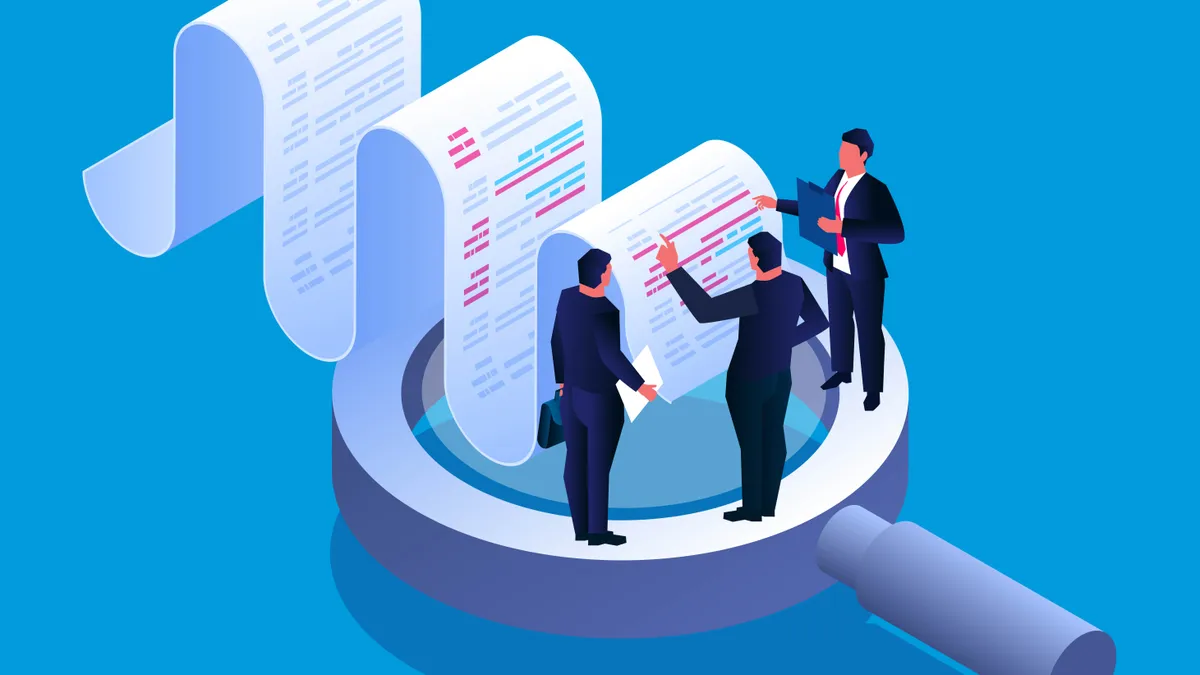Steven Cronin is senior vice president of customer excellence at ABBYY, a global tech company. Views are the author’s own.
Volatile market factors, reports of bank failures, uneasy stakeholders and the emergence of generative artificial intelligence (AI) all require modern CFOs to constantly adapt their role. Such responsibility likely causes increased stress or even insomnia.
At the heart of all these difficulties is the need for transition to better and faster technologies, and intelligent automation plays a major role. Intelligent automation combines various technologies, including machine learning, natural language processing and robotic process automation, and implementing it in areas like accounts payable can be an essential move for ensuring better visibility to all dimensions of finance operations. This can benefit cash flow and working capital allocation, financial forecasting, internal and external controls and strengthen vendor relationships.
Automation is especially significant when considering the soaring volumes of invoices resulting from the gig economy and online transactions. In fact, an International Organization of Financial Managers’ survey conducted in 2022 reveals that more than 75% of AP teams report they processed more invoices in their most recent quarter, up from 66% in the prior two quarters, and 80% report that increases in invoice spending contributed to increased transaction costs.

Finance teams continue to experience inefficiencies in invoice processing, including manual routing along with excessive escalations and reworks. Levvel research estimates 29% of AP teams suffer discrepancies, as many as 48% have lost or misplaced invoices, and 20% miss out on discounts because of slow processing.
Process mining
So how do finance organizations transform AP operations from a cost center to an area that can improve operating margins?
The essential first step is the discovery of your finance processes: think of it as diagnosing your current finance operations and enabling you to make data-driven decisions for process optimization. Like an x-ray, it provides transparency of your process data that captures your workflow and any variations.
This type of insight, called process mining, helps your organization gain granular visibility, enabling you to visualize exactly how your finance processes behave and thus develop suitable measures for transformation. More importantly, it shows you where your processes slow down, enabling you to understand why that slowdown is occurring. It also allows you to continuously monitor your process performance to show whether your investments are effective or leading to improvement. Garter found that CFOs are now investing in process mining technologies as the cornerstone for finance process optimization.
The next important stage of transforming AP is to achieve better straight through processing — that means full automation of invoice data extraction, validation, matching, exceptions, escalations, and final booking of all invoice amounts in the ERP system — all without human intervention.
AI takes on AP
Sophisticated automation tools use out of the box so-called plug-in document AI skills to automate and process any sort of document, including purchase orders, invoices, expense claims, receipts or pay slips. Using advanced AI and machine learning, finance teams can remove redundant operations, reduce transaction costs, and gain better visibility to cash flow. When implemented properly and with the right tools you can expect an incredible reduction in invoice processing costs.
The benefits continue: There are higher returns on invested capital by taking full advantage of early payment discounts, which can be more rewarding than you think. For example, if your supplier offers you a 2% discount for paying an invoice within 10 days, and you do, it means you’re giving up use of your money for 20 days in exchange for 2% off. However, a 2% return over 20 days translates to an impressive 37% return when annualized.
In terms of legalities, the digital transformation of accounts payable will also streamline and mitigate finance audit and compliance risks. Finance and accounting teams rely on tools such as spreadsheets and manual processes with only limited visibility to potential conformity risks. True automation providing real time monitoring, allows you to specify strict conditions and alerts you of potential deviations from prescribed processes, taking a heavy weight from CFOs’ minds.
It's clear that the role of the CFO has become more complex, with growing pressures to transform finance functions and drive efficiencies at zero cost. Leveraging intelligent automation to increase straight through processing of invoice volumes leads to improved customer service levels, better visibility of cash flow and higher return on invested capital. This in turn can lead to a better night’s sleep.













